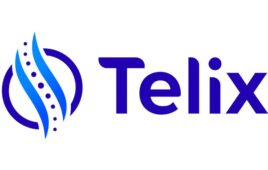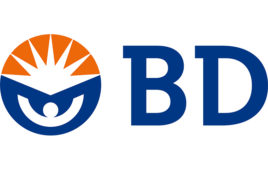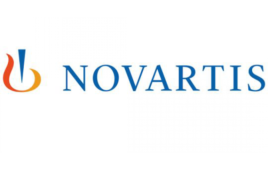Health care organizations involved in the manufacturing, distribution and dispensing of pharmaceutical products recently announced the creation of Rx Response — a program designed to help support the continued delivery of medicines during a severe public health emergency. The partnership includes the American Hospital Association, American Red Cross, Biotechnology Industry Organization, Healthcare Distribution Management Association, National Association of Chain Drug Stores, National Community Pharmacists Association and the Pharmaceutical Research and Manufacturers of America. “During a disaster, it is vital that systems are in place to assist with the continued delivery of medicines to hospitals, healthcare providers and patients in need,” said Billy Tauzin, president and CEO, Pharmaceutical Research and Manufacturers of America (PhRMA). “Rx Response is a partnership dedicated to assist with the delivery of critical medicines to patients whose health is threatened during a crisis.” The Rx Response program includes the pharmaceutical and biotechnology manufacturing industries as well as distribution companies, community pharmacies and hospitals – all of whom play a role in delivering medicines to patients. The group also includes the American Red Cross – and all of the partners worked with the U.S. Departments of Health and Human Services and Homeland Security to develop this program. Additionally, the partnership is working with state emergency agencies to further develop the program to help support the continued delivery of medications to patients whose health may be threatened during a crisis. “Disasters can strike at any time and the American Red Cross encourages all families and individuals to be Red Cross Ready by taking three simple steps – get a kit, make a plan, and be informed,” said Joe Becker, senior vice president, Preparedness and Response. “An important part of any disaster kit is the inclusion of any vital medications, in addition to at least three days supplies of food and water and other essential items. This initiative can be vital in helping people plan for the possibility of disaster.” In the past, when the pharmaceutical supply chain was disrupted, there was no single forum for suppliers to convene and share information. Now, Rx Response will help support information sharing among partners, community volunteer relief organizations and local, state and federal agencies responding to major disasters by helping to support the continued delivery of critical medicines and, where possible, addressing challenges.”Daily and in times of crisis, HDMA’s primary healthcare distributors are prepared and on the front lines delivering billions of prescription medicines and healthcare products to 144,000 local pharmacies, hospitals, doctors offices, clinics and nursing homes across the United States. As a partner in Rx Response we continue our commitment to emergency preparedness and coordinated response efforts on behalf of patients,” said John M. Gray, president and CEO, Healthcare Distribution Management Association (HDMA). The program will be activated when responding to severe domestic public health emergencies — when existing emergency relief plans and service programs are disrupted — to help assist partner organizations in their individual response activities. For example, a disaster declared by a U.S. Governor or the President of the United States, may initiate Rx Response program engagement. Other situations warranting initiation, as determined by Rx Response, may also activate the program. While public health emergencies will be determined on a case-by-case basis, there are a number of existing mechanisms that will be used to help guide decision-making:
- Disaster declaration by a U.S. Governor or the U.S. President
- American Red Cross Level V+ Event
- Department of Homeland Security Severe Classification
- World Health Organization Phase IV+ Event
- Health and Human Services Stage 2+ Event
- Other situations warranting a response as determined by the respective decision-making bodies within the represented industry groups
“In times of crisis, people turn to hospitals to help and heal. To do our jobs, the men and women of America’s hospitals need important resources such as medicines,” said Rich Umbdenstock, president and CEO, American Hospital Association. “In extraordinary situations, we’ve learned that we need a better way to help provide hospital caregivers with the tools they need to do their job. This effort will help do just that.” In addition, Rx Response partners emphasized the important role patients play in emergency preparedness. The consumer website, http://www.rxresponse.org/, offers visitors the opportunity to print a convenient wallet card — in English or Spanish — where they can include a personal list of medications and other relevant medical information in case of emergency. “As leaders in the production of existing therapies and the development of new treatments for patients, biotechnology companies are proud to participate in Rx Response,” said Jim Greenwood, CEO of Bio. “We know this program, in tandem with government efforts, will be extremely valuable in a severe public health emergency to improve access for patients to life-saving biotech medicines.” “Retail community pharmacy has a strong track record in maintaining essential prescription services during times of disasters. In fact, a just-released Department of Health and Human Services Office of the Inspector General report suggests that community pharmacy did just that after Hurricane Katrina,” said Steven C. Anderson, IOM, CAE, president and CEO of the National Association of Chain Drug Stores (NACDS). “The new Rx Response program is a natural extension of the capabilities of pharmacists, as front-line health care providers, in serving the public in critical circumstances.” “The National Community Pharmacists Association is pleased to participate in an effort to help facilitate collaboration between the private and government sectors. Many of the 23,300 community pharmacies in the U.S. are located in rural and underserved areas where patients have the greatest medication needs-especially in the event of a disaster. We look forward to working with the Rx Response groups in concert with federal initiatives,” said Bruce T. Roberts, R. Ph, executive vice president and CEO, National Community Pharmacists Association (NCPA). Rx Response is comprised of healthcare organizations recognizing that access to medicines during times of severe public health emergencies requires a broad public effort and close communication among the many public and private sector stakeholders involved. This includes responding agencies such as government agencies, as well as private relief groups.




